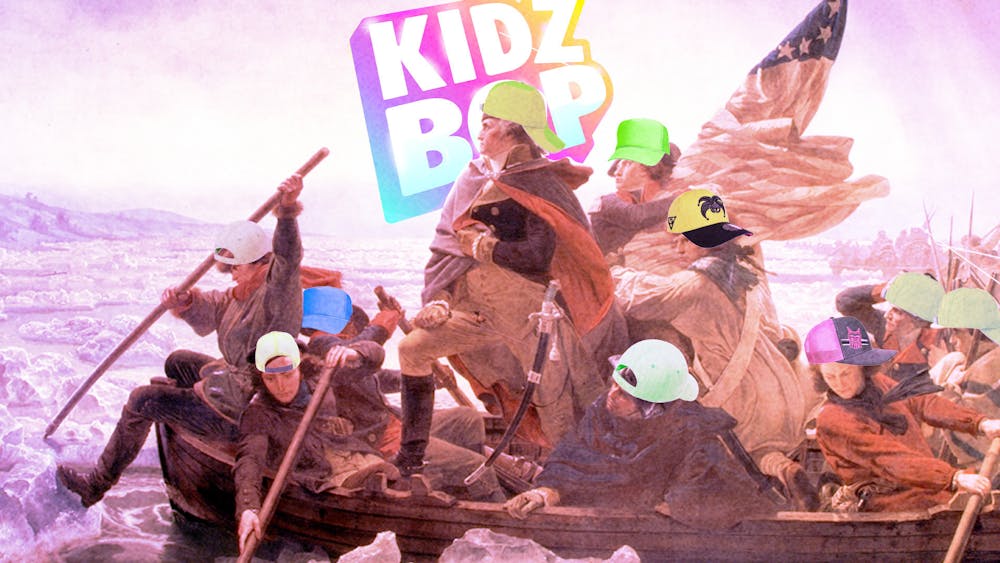There are some who complain that America has gone woke—but when has it not been? The woke mob (Puritans) have been canceling (executing) innocent Americans (“witches”) since our nation’s founding. The original colonizers of New England were among the first to promote a “politically correct” culture in the U.S., rigidly enforcing Puritanical codes of morality and behavior under threat of exile or even death. This unique founding spirit has never really gone away—from the Hays Code to the Satanic Panic to Tipper Gore’s Parents Music Resource Center, the instinct to censor runs deep in American culture. But in recent years, a new outgrowth of this horrifying urge has manifested itself in an entity so cloaked in pizazz and saccharine pop sweetness that it almost defies recognition for the beast that it is. I speak, of course, of that devil Kidz Bop.
1807, London: Harriet Bowdler sits over her copy of Shakespeare’s collected plays, crossing out all that is not prim and proper.
Growing up, Harriet’s father would read her the stories of William Shakespeare as she went to bed. When she was older and grew able to read them herself, however, she was disgusted—every page was littered with bawdy, racy, and downright uncouth verbiage. Realizing that her father had been redacting sensitive passages as he read to her, Harriet decided to do the same for all the women and children who lacked the privilege of having a sophisticated gentleman in their homes to expunge the filth from Shakespeare’s vile texts. For years, she toiled, chipping away at the Bard’s verse and replacing it with her own sanitized version of events.
Harriet, of course, isn’t able to publish under her own name. A woman? Literate? Please.
The book flops.
1818, London: Thomas Bowdler, her brother, does the exact same thing.
It’s a hit.
The same drive to purify that once gripped the Bowdlers has now brought us into an age of Kidz Bop hegemony. Kidz Bop is thought of by most of our generation as the thing that is played in gym class in the background of warmups. To reduce it to this trivial role, however, denies it the honor it deserves as a titan of the children’s music industry. In 2015, sales of Kidz Bop records made up about a quarter of all sales in the children’s music space. Every year, the latest Kidz Bop album typically becomes the highest–selling children’s music record of the year. The Kidz Bop Kidz alumni list boasts such titans of the industry as Ross Lynch and Zendaya. Each year, their power grows, filling their space with more and more content, penetrating markets across Europe and the Americas. Like it or not, Kidz Bop is the voice of a generation—a generation too young to vote, shop, or even think for themselves—but a generation nonetheless.
But who cares? Why think about Kidz Bop at all? Like it or not, the instincts that it reflects play a deep role in shaping our society. The debate over censorship has consequences beyond the integrity of any single work of art; it speaks to a divide over what kind of conduct society is willing to permit and what kind of lessons we should be teaching the next generation. The censorship of the Kidz Bop style is the last gasp of a dying Puritanism in an increasingly secular America, fighting desperately against any content that dares to inject anything distasteful into the cultural milieu.
The keyword, of course, is dying. With the advent of the digital revolution, children are speed–running their losses of innocence like never before. While TikTok and Instagram Reels may corrode our attention spans and blunt our ability to learn, they also have the dubious honor of exposing children to a vast realm of knowledge on “profane” topics. With Reddit story TikToks about cheating, STDs, and violence taking over the zeitgeist and with no real way for parents to stop their kids from seeing these horrors, iPad kids appear to have liberated themselves from the constraints that their parents have attempted to lock them into.
But perhaps this illusory freedom hides a deeper repression. To live is not only to consume what you want but to act and explore the world around you. More and more young people today say they’ve never driven a car, never been in a relationship, leaving their room less and less. The formative experiences of generations past have fallen by the wayside in an age of digital mediation. What will the culture of the next generation be? Does technology liberate us or confine us to a life seen but not experienced? Where do we go from here?
Also, the music is not very good.

